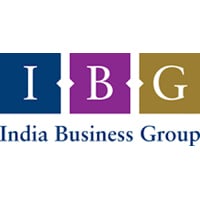
India Teams 2019

| Flipkart








Flipkart
Can you briefly explain how the legal team is structured? In order to best serve the needs of the company, the legal team at Flipkart is structured similarly to how the overall business is, with a focus on key areas that require consistent support. Our team is an enterprise function and supports all our various entities including Myntra, Jabong and PhonePe, each of which require understanding the specific nuances of the business. Our team also handles the entire company secretary and governance requirements for each of our entities. We also have specific teams for specialised requirements, such as M&A, litigation, IP, and regulatory compliance. The structure was put into place to ensure smooth and effective functioning for the business as a whole while providing the level of expertise needed to support growth areas that are a key focus for the business. What are the most significant cases and/or transactions that your legal team has been involved with in the last two years? The most significant case for the legal team at Flipkart in the last two years has been Walmart’s investment in the company, starting with the pre-deal phase and then the follow-up housekeeping around that. The investment from the world’s largest retailer proved to be an exciting and challenging time, with a lot of work required in the back-end. The deal itself was a testament to Flipkart’s potential and status within the e-commerce space, so ensuring that the transaction went smoothly was of utmost priority. Once the deal was completed mid-2018, the focus for the legal team turned to issues of compliance. Having a significant investment from a US company necessitated huge amounts of legal work around governance, ethics, compliance and integrity, as new rules and regulations had to be considered. This work is ongoing as Flipkart continues to mature and grow as a company. What recent political, economic or regulatory changes in India have impacted your company and the team the most? With the e-commerce industry in India in a nascent and developing stage, regulatory frameworks are still being crafted and implemented. As such, the work for the Flipkart legal team in this landscape is dynamic, changing from day-to-day. The government has been working together with various Indian e-commerce companies to develop the Indian e-commerce legal code, around various issues. As the country’s premier home-grown e-commerce company, Flipkart is playing a key role in the government’s consultation process on various bills and is engaging with lawmakers to ensure a broad-based legal and political framework is put in place that will help the industry grow and reach the dizzying heights it is expected to. What will be the main focus for the company in the next 12 months and how does the team intend to assist with this? Flipkart’s aim over the next year is twofold – to bring the next 200 million customers, most of them from rural areas, into the e-commerce fold, and to generate shared value in the ecosystem for all our partners and stakeholders, from MSMEs to farmers. The legal team will be focused on grounding these two goals in a culture of compliance, ethics, and integrity. The legal team will play a key role in the governance around initiatives focused on empowering NGOs, underserved communities, farmers, and MSMEs, as well as offerings designed to boost customer convenience and engagement. How has the team harnessed technology to improve output or drive efficiencies? Flipkart is a company heavily rooted in technology and a culture of innovation. The business as a whole uses technology to improve efficiencies, and the legal team is no exception to that. We are constantly evaluating new technology in areas such as CLM, Docusign for electronic signatures and simplifying and digitising our approach and reducing our turnaround time. We are currently in the process of rolling out a CLM tool to streamline our contracting process. We are also heavily technology dependant while conducting board meetings and use technology such as Diligent to upload and share information and improve security. In the coming months, we expect to start evaluating a governance tool which will help with regulatory filings and tracking of upcoming requirements. Can you sum up the team culture/ethos? Giving some information afterwards about how this is developed. Flipkart’s success today is a result of the culture we have fostered over the last ten years. We have an extremely collaborative work environment with a focus on risk-taking and innovative problem solving. This is true for the legal team as well, which also reflects the entrepreneurial spirit of the company. We look for individuals who reflect the same values as the company – those who are not afraid to be audacious in their approach and are extremely proactive while ensuring strict compliance to the laws of the land. In our team, it is also imperative to have a strong foundation of integrity and ethics. These are the factors that help us ensure we select the right business. We also empower new joiners to immediately wet their feet with the business, targeting deep and early engagement. To help the team get better at what we do, we have a comprehensive learning and development programme in place. Overall, the day-to-day job is very fast-paced and dynamic, giving the team a chance to learn and grow rapidly. This is a major draw for talent, we have found. As a company, we are at the forefront of the Indian retail revolution, meaning that there is an unparalleled opportunity here to do meaningful and path-breaking work that will set the standard for the e-commerce industry as a whole.